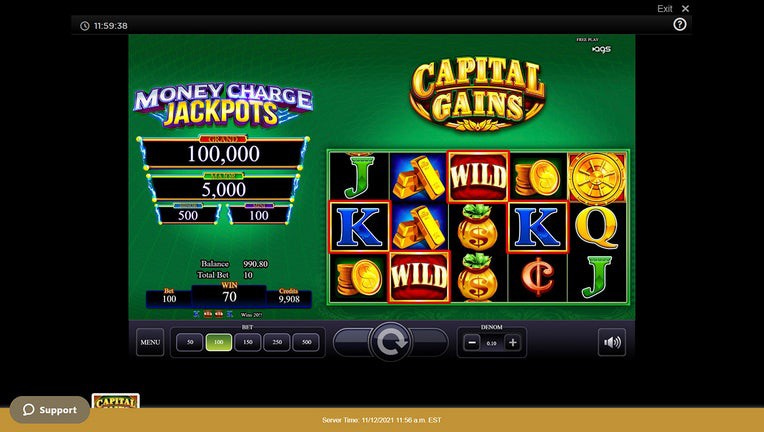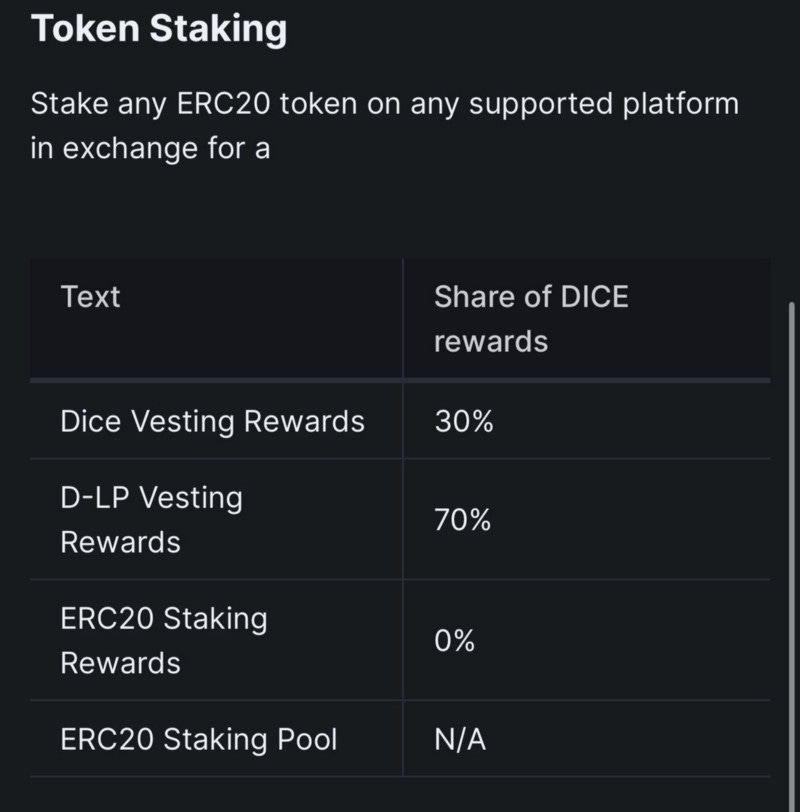The Arbitrum Casino: An Overview of the Cryptocurrency On-chain Gaming Narrative
Degens like gambling. Is there anything more we really need to say?
Degens like gambling.
Is there anything more we really need to say?
Already in the early days, gambling applications were built on Bitcoin.
My fascination with on-chain gambling started in 2016 a friend of mine won 32 BTC on Prime Dice.
Yes — I also tried my luck. No — of course I didn’t win.
On-chain gambling is by far one of the most interesting use cases in crypto due to two main reasons:
1. The use of blockchain technology solves several issues with current gambling;
2. Undeniably, cryptocurrency users have a high tendency to gamble with their assets. Might as well do so in an on-chain casino.
This article provides an overview of on-chain gambling, the problems it solves, and takes RollBit and Dice as successful use cases of this narrative.
What is on-chain gambling?
Decentralized gambling, also known as blockchain gambling or on-chain gambling, is a type of gambling which uses cryptocurrency technology.
Accepting Crypto does not mean On-chain Gambling:
There is a drastic difference between accepting cryptocurrency as a payment rail and using blockchain technology in the platform.
For the purpose of this article, we are referring to the latter.
Issues with Traditional Gambling
In order to better grab the improvements that on-chain gambling brings, it is important to highlight the main issues of traditional gambling.
As in all centralized top-down systems, the main element of traditional gambling is trust.
Anyone placing a wager is putting trust in the centralized gambling operator that bets have been placed, and secured, and that winnings are paid out. Even if the operator only uses games-certified random number generators this level of trust is still required from the player.
Operators could, in fact, falsely accused players of cheating, of game malfunctioning, or simply refuse to payout.
These events actually occur more often than we think and even involve major gaming companies.
2. The second issue with traditional gaming is that, unless the operators are certified, users have no way to verify whether a game is provably fair.
3. Gambling operators rely on a large network of partners: withdrawals are often constrained by size and take a few days to process, and these parties obviously charge a fee: increasing cost and, for instance, introducing a minimum withdrawal limit.
4. Games are subject to malfunction and they may happen to encounter payout issues, exposing the operator to the risk of “chargebacks or fraudulent transactions”.
How can Blockchain gaming solve these issues?
What is the advantage of moving on-chain?
Advantages of On-chain Gambling
By moving on-chain, gambling removes the need to trust humans and puts this trust in smart contacts.
If anyone places a bet in an on-chain casino, the transaction is immediately broadcasted and recorded on the blockchain, and can serve as a public, transparent and verifiable receipt of their wages. Since transactions on the blockchain are immutable, it is impossible for an operator to claim that a wager was not placed.
In the same manner, it is also impossible for an operator to claim that the bettor cheated, as the smart contract would only execute within the guidelines established by the operator.
Externalizing trust in smart contracts also ensures that bettors will be paid out in the event of a win, as the payout execution would be automated.
Since on-chain gambles are open to verification, users can ensure that games are provably fair — even if the site does not provide a summary or history, users can search transactions themselves, as records are public.
Betting large amounts of money on something that can be safe and fair can create unique gameplay experiences that anyone would love to enjoy, making it a very strong value proposition.
On-chain gambling also benefits users with speed and lower costs:
1. Users can withdraw winning almost instantly;
2. The use of cryptocurrency results in lower costs, while in traditional gambling most credit card or third-party payment processes charge users transaction fees, for example for withdrawing or depositing funds.
Last but not least, something interesting and sort of counterintuitive is the fact that according to Simmel’s Philosophy of Money, cryptocurrency would be perceived as neutral and not specifically earmarked for gambling purposes. This may reduce the tendency for online gambling sites to lead to excessive gambling.
Gambling operators can also benefit from using these technologies.
In fact, blockchain technology can be crucial in combating fraud: cryptocurrency transactions are irreversible, meaning won’t have issues with fraudulent or non-payment. Furthermore, operators would not be subject to the risk of payment failure and would not depend anymore on banking institutions or payment providers.
On-chain gambling also benefits from the open nature of blockchain and is more pervasive than traditional gambling because it can easily be made available in new markets that do not have access to traditional banking systems — including those where gambling is prohibited.
To be completely honest, aside from of course the regulatory grey area in which on-chain casinos operate, the whole industry could benefit from increased transparency: each transaction or bet would be visible for verification, bets are paid out automatically when outcomes occur, and with no customer accounts and funds to protect.
Other key challenges of online gaming solutions that Blockchain Dapps can resolve:
Trustworthiness: some online casinos can still be sites where fraud and scam happens. Trust has to be established with users;
Lack of transparency: some platforms have hidden charges, while other casinos take a long time before releasing a bettor’s winnings.
Exposure of customer-sensitive data: online gaming sites require sensitive information from users when signing up. The information can leak to third parties and expose the customer to various risk
The service uses a random number generator to determine if the wager wins or loses and payouts are sent immediately to players, rather than deposited into an online gambling account that remains with the operator. For players, as they do not keep funds in an online gambling account, there is no risk that the site will be hacked, seized or funds stolen from an online account. For operators, there is no requirement to manage and protect player funds and accounts. This also reduces associated regulatory issues and compliance regarding player funds and accounts.
IS THIS TRUE FOR DICE OR ROLLBIT?
What are the key challenges of online casino games?
The elephant in the room of on-chain gambling is regulation.
Crypto gambling is neither prohibited nor allowed in many countries at the moment. Even users in countries where gambling is prohibited can easily use a VPN and a decentralized wallet to access on-chain gambling. As such, current “licensing conditions appear unable to affect the operation of many decentralized gambling applications”.
Especially difficult to capture by regulators is the smart contract part of decentralized gambling. The regulatory risk is bound to grow with time, meaning that even though decentralized casinos may be housed in favorable jurisdictions (e.g. Curaçao), they are not immune to governmental intervention: “the interface (website) part of these applications are technically easier to obstruct, and can be a fruitful avenue for intervention as required”.
Here’s an example of how the US regulates blockchain gambling: FinCEN, a US government institution in charge of financial regulations, issued regulatory Guidance for certain business models involving convertible virtual currencies. According to it, online casinos performing Convertible Virtual Currency (CVC) money transmission — or any person engaged in the business of gambling that is not covered by the regulatory definition of casino, gambling casino, or card club, but accepts and transmits value denominated in CVC — may be regulated under the Bank Secrecy Act (BSA) as a money transmitter.
In the UK, The United Kingdom Gambling Commission (UKGC) is the governmental body responsible for regulating all forms of gambling activities, including online. In 2017, UKGC issued a position paper, which considered the use of virtual currencies in the gambling industry. The paper states that “the ability to convert any in-game items into cash or to trade them (for other items of value) means they attain a real-world value and become articles of money or money’s worth. Where facilities for gambling are offered using such items a license is required. If an online gambling business wants to accept virtual currency as a means of payment, it must satisfy that it can meet AML obligations and is acting in a socially responsible way. This means that casinos accepting cryptocurrencies need to employ proper verification providers to keep their licenses”.
RollBit and $DICE: Successful Case Studies of On-chain Gambling
Gaming on Bitcoin was limited due to the inherent speed of the blockchain: it was good enough to play a simple dice game, but not flexible or fast enough to build gambling smart contracts.
The perfect infrastructures for on-chain gaming are blockchains with high TPS speed and low fees. Two of the most successful on-chain gambling avenues are RollBit and $DICE, build respectively on Solana and Arbitrum.
Of the two, RollBit is the most centralized and popular, while $DICE adopts a decentralized model.
RollBit
RollBit is by far the most successful and known gambling platform.
RollBit owes its success to a very simple UI and onboarding process and a never-seen-before suite of rewards for users.
A great onboarding strategy used by RollBit is to issue a collection of 10,000 NFTs called Rollbots, allowing individuals to own a part of the casino a receive a share of profits, as well as become VIPs and unlock additional rewards. Users could purchase them with cryptocurrency, debit and credit cards, and also Google Pay and Apple Pay.
In the words of Rollbit founder:
“We’re delivering an NFT collection that has utility right from the moment of launch that is unmatched by other projects. The launch follows the introduction of Rollboxes, which are exclusive to Rollbit and give players the chance to win high-valued NFTs. The biggest utility offered by Rollbot NFTs is that holders can create their own Rollboxes, in effect, becoming the house and earning a return for the NFTs they risk.”
What are RollBit Rewards?
In their own words, the RollBit program was meant to be “easy to understand and very rewarding.
It gives back “up to 70% of the house edge received from user bets”. The levels system includes rake back, level-up bonuses, and special prizes for #1 players.
RollBit manages to keep users by offering generous daily, weekly and monthly cashback:
A practical example of the reward program has been shared by Gainzy — fair enough he’s a huge whale so probably none of us will get the same reward but it gives a practical example of the consistency of the rewards.
A daily 10% rebate is a great incentive to keep using the platform.
The amount of rewards and the gamification of a system instills loyalty and help RollBit with user retainment — especially given that currently, no one offers the same level of rewards.
As such, with a combination of a clear UI, clever onboarding, and a generous rewards strategy RollBit has established itself as the key player in on-chain gaming.
RollBit is compliant with AML regulations and as such it’s not possible to access it from the EU or US. They are fairly centralized, as users have to KYC and can deposit money using debit, credit cards, or even Apple and Google Pay.
Nonetheless, all their games are provably fair. The game results for the future rounds are already pre-determined. Before each round, RollBit reveals a hash of the result, making it impossible to change the result after the fact.
Party Dice ($DICE)
Another new and upcoming project in the on-chain gaming space is $DICE, built on Arbitrum. Compared to RollBit, $DICE is more decentralized and can be compared to the $GMX of casinos.
Play Dice is an on-chain casino where users can gamble using $DICE, the native currency. $DICE is burned or minted based on deflationary gambling mechanisms: when you roll dice, it burns them; if you lose, they are burned from the supply, if you win, double is minted. Burning helps the protocol stabilize liquidity and make the token deflationary. Users have a 45% chance to double the wager; the house edge can be lowered from 5% all the way to 0.25%, to incentivize volume and interactions.
Liquidity is incentivized as holders of $DICE and LP shares receive further earnings that can be claimed anytime. They don’t need to stake to earn rewards or to burn or sell to claim rewards.
A key feature introduced by DICE is Polystaking: a casino house contract with liquidity provided by users, that are able to create a pool on $DICE and become the house. There are whitelisted blue chip assets such as $BTC, $ETH, $GMX, $USDC, or a non-whitelisted pool that can be created using any coin.
“Users will be able to bet against the house liquidity to try and win, and stakers all win together as the house liquidity grows”.
This is a big advantage for $DICE users: imagine being able to create any pool (like on Uniswap or Sushi) and load up a % of coins into $DICE, and being able to benefit from GMX-like rewards.
Any coin can be gambled and the possibilities for expansions are limitless: any game can be created on top of this.
This is sort of the main difference between RollBit and $DICE.
$DICE aims to be a casino factory, where new casinos will be built on top of it. It aims to be the underlying infrastructure to build more on-chain casinos.
The game dynamics of Dice are secure and randomized, thanks to the use of Magic VRF Oracle: all numbers are randomized and generated on-chain, making sure the platform is provably fair.
Dice has had quite a rise in price, mostly from the Arbitrum mania and their upcoming Dice V2.
If you are interested you can try V2 on testnet already! The team said it will be on the mainnet Arbitrum too in the upcoming month(s).
In the last weekly update, the $DICE team mentioned that aside from V2 they are now working to partner with sportsbooks.
In fact, they just announced a partnership with OSO, that will allow $DICE to be permissionlessly wagered on the Super Bowl.
Conclusion
The success of RollBit has spurred a new wave of on-chain gaming casinos and the narrative really seem to be picking up. However, with greater attention, the sector should also expect increased regulatory scrutiny.
On-chain casinos established themselves by clever use of incentives and game theory to acquire a strong initial user base. Competitors will have a much harder time doing so, as replicating the current model alone won’t be enough.
We observe that in on-chain gaming users are able to benefit more, compared to traditional gambling.
In both cases, users are the product. Still, while in traditional gambling they are exploited, on-chain gaming gives them a chance to be the house and sugarcoats the games with nice rewards, and an incomparable user experience.
There are also important differences between the two case studies chosen:
1. RollBit aims to be the place where gamblers go, it is regulated, provably fair, and requires KYC;
2. $DICE is more decentralized and an infrastructure play: the provision of liquidity, and rewards, coupled with the infinite possibilities to build on top of it make it a DeFi version of Online Casinos, with limitless partnerships and game developments.
With all that being said, it’s very important to mention that gambling is not mandatory and you should be really careful not to spend more than you can afford on these sites, as they are programmed to be addictive.
For those who still want to try RollBit, you can do so using my referral:
https://rollbit.com/referral/supportmywriting













